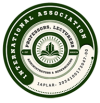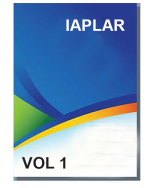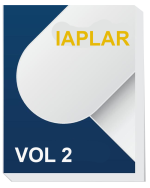| 1 |
Author(s):
Catalino N. Mendoza, Rosalinda B. Lacerona, Mildred P. Jimenez, Joselito Arevalo, Arnie Margarette D. Casareo, Allaiyah Kriszel C. Durante, Nicole A. Escototo,, Gillianna Dia Loreen V. Libunao, Ronalyn S. Pocallan.
Page No : 45-67
|
Factors considered among the University of the East— Manila Students in their College Program Preference
Abstract
This research is a quantitative study that investigated relationships among variables
of the factors which includes the National Career Assessment Examination
(NCAE), employability, and financial capability and its relationship to college
program preference of the University of the East Manila students in Academic Year
2022-2023. The main objective of the study was to prove that there was a significant
relationship between the (3) three factors and college program preference. The
NCAE's goal is to assist students in determining which program to take in college
and what type of profession they are ideally equipped for. Aptitude tests which are
evaluated through grades are significant data points used to know a student's career
strength. The researchers used survey methods via Google Forms. Overall, the three
factors, namely National Career Assessment Examination, Employability, and
Financial Capability have shown a significant relationship from the perception of
the respondents in terms of college program preference. Moreover, students aim to
pursue a career inclined with their college program even though rising tuition fee
has been one of their major concerns. Determining the mentioned factors ’
relationship with college program preference could contribute to one-on-one
consultation sessions which can be used to articulate the results of the career
assessment to the student, inform them of the benefits and drawbacks of pursuing
each path, and provide them with the clarity and understanding they need to make
the right decisions.
| 2 |
Author(s):
Irene A. De Vera, Ph.D., Analyn I. Diola, M.Sc., Genesis A. Padilla, Marry Ann E. Soberano, Jeffrey M. Tamayo, Fermina Bacarisas Delos Santos.
Page No : 68-75
|
Formulation and Evaluation of Nipa Fruit (Nypa fruitican) Tart
Abstract
Formulation and Evaluation of Nipa Fruit (Nypa fruitican) Tart
| 3 |
Author(s):
Rolando R. Calma, DBA, Francis Allan C. Bernales, MBA.
Page No : 76-95
|
Financial Knowledge, Behavior and Practices of Teaching and Non-Teaching Personnel in a Private Higher Education Institution in Province of Bulacan, Philippines
Abstract
Financial Knowledge, Behavior and Practices of Teaching and Non-Teaching Personnel in a Private Higher Education Institution in Province of Bulacan, Philippines
Rolando R. Calma, DBA
Francis Allan C. Bernales, MBA
Abstract
Research studies show that Filipino people and families are found to be financially unprepared. This financial situation in the country shows the unimaginable reality behind the very common financial management and practices among the Filipino people and it can cause them financially handicapped. Absence of understanding of the relevance of financial management may cause significant risk in the financial security of the people and will eventually affect financial steadiness of the people in the next generation. This study aims to determine the financial knowledge, financial behavior and financial practices of the teaching and non-teaching personnel in a private higher education institution (HEI) as a basis for development of a financial management plan. The descriptive method of research was employed in this study to gather information about the respondents’ financial knowledge, behavior and practices in the areas of savings, expenditures or spending , credit and borrowing, and investments perspective. Based on the data gathered and analyzed, it was found that that teaching personnel are more financially knowledgeable in handling their personal finances than the non-teaching personnel. In terms of the respondents’ financial behavior, it was found that teaching personnel have better or more positive behavior towards financial matters than the non-teaching personnel. Likewise, findings of the study revealed that teaching personnel are more aware that there is always room for the need of financial education than the non-teaching personnel. Results of the study also showed that, in terms of the credit and borrowing practices, teaching personnel have better credit and borrowing practices than the non-teaching personnel. Teaching personnel, such as teachers and professors, typically have better credit and borrowing practices than non-teaching personnel. One of the main reasons for this is that teaching personnel generally have higher levels of education than non-teaching personnel. They often have advanced degrees and are required to continually engage in professional development. This education and training can provide them with a better understanding of financial management and personal finance, which can lead to better credit and borrowing practices. At the end, it may be suggested that more empirical research studies be conducted in order to thoroughly evaluate and validate the findings of the present study in terms of the differences between teaching and non-teaching personnel on their financial knowledge, financial behavior, and financial practices.



Recent Comments